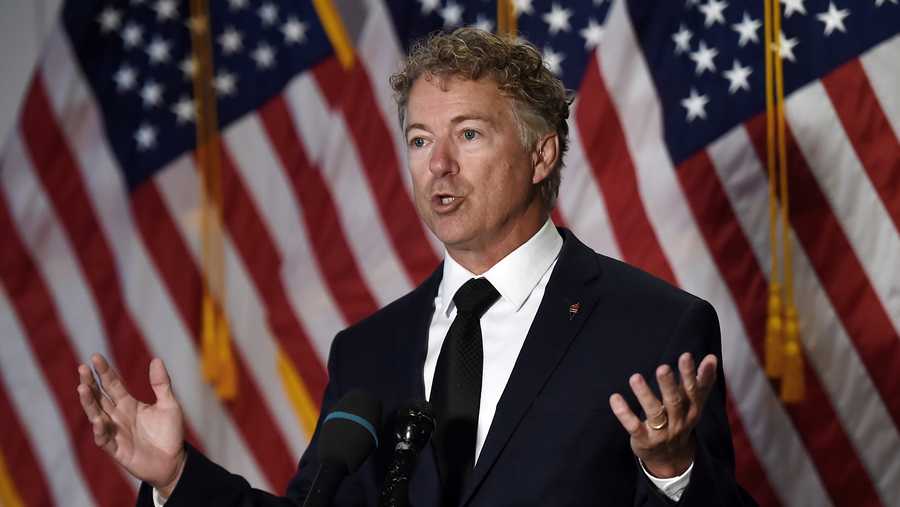
Rand Paul is a medical professional and politician, best known for being a leader of the Republican Party's libertarian wing. Elected to the U.S. Senate in 2010, Paul has proven to be an outspoken champion for constitutional liberties and fiscal responsibility. An ophthalmologist by training, in 1995 Paul founded the Southern Kentucky Lions Eye Clinic, an organization that provides eye exams and surgery to needy families and individuals. He is also a former president and 17-year member of Lions Clubs International, which is dedicated to preserving sight by providing eyeglasses and surgery to the less fortunate around the world. In recognition of his humanitarian efforts, Lions Clubs International has awarded Paul many of its highest commendations. On top of that, the senator from Kentucky was named one of Time Magazine’s ‘World's 100 Most Influential People’ in both 2013 and 2014.
Interestingly, the senator from Kentucky also holds the distinction for being one of today's few practicing medical doctors who never earned a bachelor's degree. That's because Paul was a few courses shy of graduating from Baylor University when he left for medical school at Duke in 1984. At the time, Duke did not require an undergraduate degree for admittance, but the policy has since changed.
Despite the demanding workload of medical school, Paul was also getting his first real taste of politics while at Duke. In addition to his classes, Paul also worked as a volunteer for his father Ron Paul's 1988 Libertarian Party campaign for U.S. President. According to The New York Times, the two would hold regular debates during road trips on topics such as foreign policy and military interventions, with the younger Paul taking stances that skewed closer to Republican ideology. After four years of school, Paul earned his medical degree in 1988. He then stayed to complete his residency in ophthalmology at Duke University Medical.
Paul maintains ties to his alma mater, especially since his son recently graduated from Duke. In 2018, the senator returned to campus to speak at an event at the Sanford School of Public Policy hosted by Young Americans for Liberty and POLIS. Paul's speech was wide-ranging, but predominantly emphasized the possibility of compromise between the right and the left. Paul acknowledged that there are differences in opinion between the two sides. But he also pointed to John Adams and Thomas Jefferson — two Founding Fathers who diverged on many issues — to convey that differences in opinion in no way determine the ability of the two sides to cooperate. “You do not always have to define yourself in terms of your party,” said Paul, offering hope to the next generation of Duke graduates.
